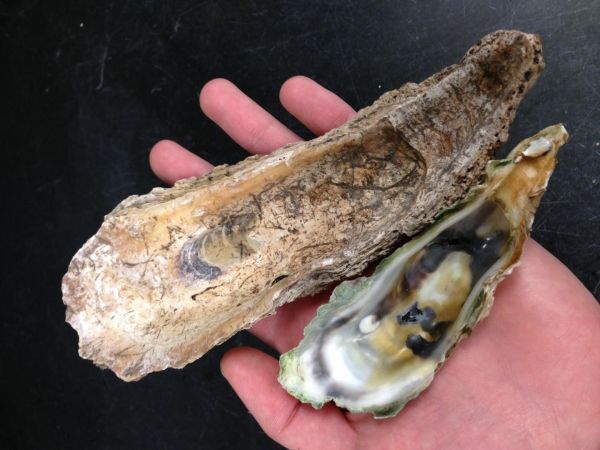Hundreds of years ago, colossal oysters were commonplace across much of Florida’s northern Gulf Coast. Today, those oysters have disappeared, leaving behind a new generation roughly a third smaller – a massive decline that continues to have both economic and environmental impacts on a region considered by many to be the last remaining unspoiled coastlines in the Gulf.
The loss of these colossal oysters is at the center of new research from an interdisciplinary team of scientists at the University of South Florida. Led by Integrative Biology PhD student Stephen Hesterberg, School of Geosciences faculty member Gregory Herbert, PhD, and Anthropology faculty member Thomas Pluckhahn, PhD, researchers utilized prehistoric oyster shells, excavated from archaeological sites near Crystal River, Florida to measure how much oyster size has changed in the area and learn more about the factors that have led to it. The intent is to better understand the habitats of the distant past to help inform the conservation efforts of today.
“Most policy makers and conservationists working in this area are only considering the last 50 years – when we first began actively monitoring these habitats,” said Herbert. “Using archaeological data, our work shows that what these systems looked like 100 or 1,000 years ago matters for conservation efforts now."
The region researchers explored is of significant importance, particularly within the oyster industry. Crystal River is within Florida’s ‘Big Bend’ region and is considered one of the last remaining pristine coastal zones with natural oyster fisheries in the United States. However, because this work illustrates huge changes there that were previously unrecognized, researchers now believe the region may not be as pristine as once thought.
Read more at University of South Florida (USF Innovation)
Image: Prehistoric oysters from Crystal River are 55% larger than modern oysters. (Credit: University of South Florida)


